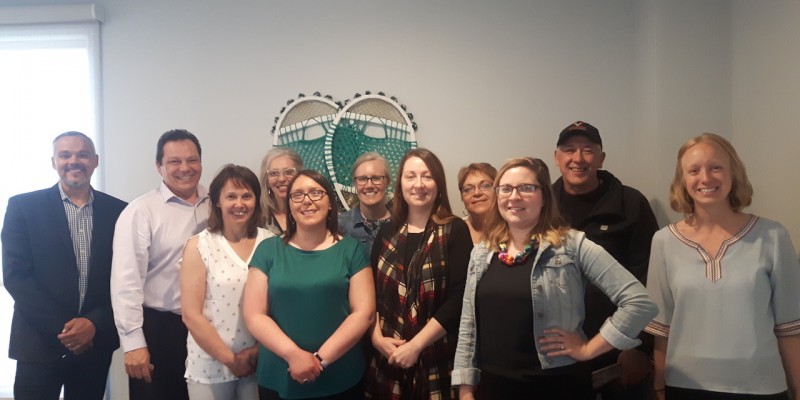The Education and Training Department is now accepting applications for the Bernie Hanlon Memorial Scholarship.
Bernadette “Bernie” Hanlon dedicated her life to supporting and encouraging the aboriginal people of Newfoundland both culturally and in working with them to meet their educational dreams. Bernie always went above and beyond for her many students and tried to help in any way possible through her many years with the Federation of Newfoundland Indians and later with the Qalipu First Nation. Bernie worked tirelessly to help those around her develop personally as well by supporting and encouraging cultural and spiritual growth. The Bernie Hanlon Memorial Scholarship was created to help a client of The Education and Training Department attending college or completing an undergraduate degree to continue to pursue those dreams.
The scholarship is valued at $1,000.00 and will be awarded to the applicant that best embodies Bernie’s passion for our culture and a commitment to academics as well as to their community.
To qualify, applicants must meet the following criteria:
· Currently be in receipt of support under the PSSSP
· Currently enrolled a college diploma or undergraduate degree program and planning to return to school in the fall.
· Achieve a grade average of B or higher in their program of studies
And answer the following essay question in 500 words or less:
“Using the information provided above, demonstrate how you embody the spirit of Bernie Hanlon.”
Please submit applications to Yvonne MacDonald via email (ymacdonald@qalipu.ca) by August 30th. Note: all essays must be submitted in PDF format.










